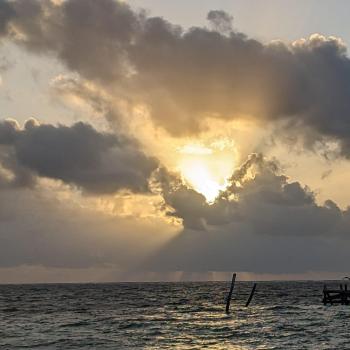In speaking about the non-dependence of the mind, Dōgen says, “Coming, going, the waterbirds don’t leave a trace, don’t follow a path.” There are many ways to understand. Driven by our need to be seen, the mind can understand in the manner that a plow cuts the earth, overturning everything it encounters; leaving nothing as it was found. Or as Dōgen suggests, in our need to see, the mind can understand in the manner that a waterbird enters and leaves water; with no trace, no path. Both ways of understanding have an intense history and lineage.
But why does he call the waterbird way a non-dependent way? Perhaps because in our dependence on being seen, heard, approved, and recognized, we insert our presence over being present. We build roads to get from here to there and quickly make the road and its path the totality of our life over the life the road moves through. We do the same with dreams and ambitions. We create goals like roads to attain and achieve and quickly substitute the path-hacking effort through life for the life our effort opens us to.












